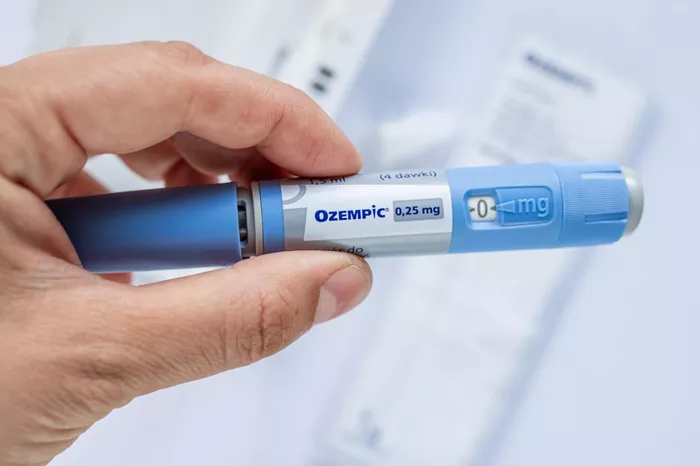Ozempic, a drug often used by celebrities for weight loss, is gaining attention for its potential side effects. While it is primarily prescribed to treat Type-2 diabetes, some people, including high-profile users, are taking it for weight loss. Despite not being approved for this purpose in the UK and US, Ozempic has become a popular option due to its ability to help users feel fuller and increase insulin production.
However, alongside its weight-loss benefits, many users have reported experiencing side effects, such as nausea and diarrhea. Notably, TV personality Jeremy Clarkson shared his experience with vomiting while using the drug, which led him to stop taking it.
In addition to these issues, some users have reported a condition known as “Ozempic face,” where the skin sags and users develop a gaunt appearance. Now, a dentist has raised concerns about the drug’s impact on oral health, introducing the term “Ozempic mouth.”
Dr. Sofina Ahmed of Viva Dental spoke with Hello magazine about the unexpected effects Ozempic can have on dental health. She explained that while patients may focus on weight loss, they often overlook how the drug can affect oral health. Saliva production, chewing, and hormonal balance are essential for maintaining a healthy smile.
“Ozempic mouth” refers to a range of oral health problems linked to the drug, including dry mouth, increased tooth sensitivity, ulcers, and premature aging of the smile. Dr. Ahmed explained that without adequate saliva, food particles and acids remain in the mouth, creating an ideal environment for bacteria to thrive. This can lead to further issues, such as enamel erosion and receding gums.
Although some people have found success with Mounjaro, another weight-loss drug, Dr. Ahmed cautioned that all GLP-1 medications—such as Ozempic—can cause these dental complications. This means users may need to choose between managing their weight or preserving their dental health.
Dr. Ahmed also highlighted that fat loss in the face, which is a common effect of Ozempic, can make the smile appear older. “Fat loss in the cheeks and jawline can cause gums to shrink, leading to a sunken or aged look,” she said.
For those who want to continue using weight-loss medications while protecting their smiles, Dr. Ahmed recommends drinking plenty of water, using fluoride-rich toothpaste, and chewing sugar-free gum to stimulate saliva production.
While Ozempic may offer benefits for weight loss, users should be mindful of its potential impact on their oral health.
Related Topics:
Who Can Get Weight Loss Injections on Nhs? A Detailed Guide


